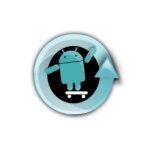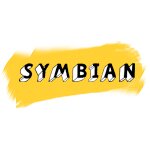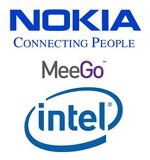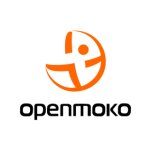Open Source Mobile Operating Systems
A mobile operating system is the operating system that controls a mobile device — similar in principle to an operating system such as Windows, Mac OS, or Linux that controls a computer.
The term mobile device is used to mean a wide range of consumer electronics and mobile devices are multi-functional devices capable of hosting a broad range of applications for both business and consumer use.
A mobile operating system is also known as a mobile OS, a mobile platform, or a handheld operating system.

Android is a mobile operating system initially developed by Android Inc., a firm purchased by Google in 2005.
Android is based upon a modified version of the Linux kernel. It is programmed in C, C++ and Java with the graphical user interface.
Android OS supports mobile platforms like ARM, MIPS, Power Architecture,x86. Few Android-powered phones are Google Nexus and Samsung Galaxy.

CyanogenMod is an aftermarket firmware for a number of cell phones based on the open-source Android operating system.
It offers features not found in the official Android-based firmwares of vendors of these cell phones, including support for the Free Lossless Audio Codec (FLAC), multi-touch, the ability to store and run downloaded applications from, support for Wi-Fi, Bluetooth, and USB tethering, as well as other enhancements.
The only supported platform by CyanogenMod is ARM.

Symbian OS is one of Nokia’s mobile operating systems for mobile devices and smartphones, with associated libraries, user interface, frameworks and reference implementations of common tools, originally developed by Symbian Ltd.
It is also programmed in C++ and supports platforms like ARM and x86. Original code base was proprietary, transition to EPL (Eclipse Public License) started with Symbian OS 9.1, completed with the Symbian platform.

MeeGo is an open source, Linux project which brings together the Moblin project, headed up by Intel, and Maemo, by Nokia, into a single open source activity.
MeeGo is programmed in C++, supports processors like ARM, x86 and currently targets platforms such as netbooks/entry-level desktops, handheld computing and communications devices, in-vehicle infotainment devices, connected TVs, and media phones.

Bada, a mobile operating system being developed by Samsung Electronics. It is designed to cover both high-end smartphones and lower-end feature phones. It is a Linux kernal based OS, programmed in C++ and supports ARM platforms only.

Openmoko is a Linux kernal based Opensource Mobile Operating system developed by Openmoko project.
Openmoko Linux uses the Linux kernel, GNU libc, the X.Org server plus their own graphical user environment built using the EFL toolkit, GTK+ toolkit, Qt toolkit and the illume window manager.
The first device released was the Neo 1973 which was followed up by the Neo FreeRunner. Unlike most other mobile phone platforms, these phones are designed to provide end users with the ability to modify the operating system and software stack.

OPhone is a mobile operating system running on the Linux kernel. It is based on technologies initially developed by Android Inc. and work done by the Open Handset Alliance.
It has been modified for local Chinese markets by China Mobile’s OPhone Software Developers Network. It supports ARM, MIPS, Power Architecture and x86 platforms.
OPhone SDK is compatible with Android SDK and deployed as an add-on of Android SDK. Installation of both OPhone SDK and Android SDK is required before developing OPhone applications.
Stay Updated
Did you find this post useful? consider subscribing to our Full RSS Feed. Stay updated by following us on Twitter and Facebook.
iOS not in the List?
Sorry It was about Open Source OS